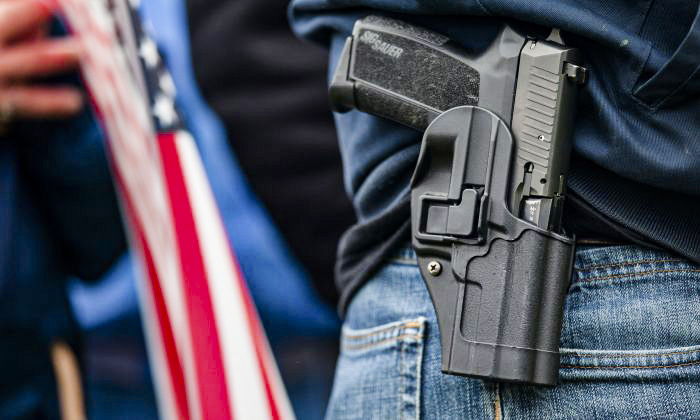Appeals Court Overturns Federal Gun Ban for Non-Violent Felons
A court has reversed a ban on felon firearm possession for Bryan Range, stating that a conviction for food-stamp fraud does not warrant restrictions on Second Amendment rights.
The Third Circuit Court of Appeals has determined that Bryan Range, a Pennsylvania resident who was convicted of food stamp fraud almost thirty years ago, is not prohibited from owning firearms under federal legislation.
“We concur with Range that, despite his conviction for making a false statement, he still qualifies as one of ‘the people’ safeguarded by the Second Amendment,” the majority opinion of the Third Circuit asserts. “And since the government did not fulfill its obligation to demonstrate that the principles underpinning the history and tradition of firearm regulation in our nation justify disarming Range, we will reverse and remand.”
While the Third Circuit acknowledged that the Supreme Court’s ruling in Rahimi “did allow for disarming (at least temporarily) individuals who are physically dangerous,” it noted that the law supported by the Supreme Court necessitated a determination that the individual being disarmed poses a credible threat to someone else’s physical safety.
“Our ruling today is a specific one,” the opinion states. “There is no evidence to suggest that Range poses a physical danger to others. Because the government has failed to demonstrate that our Republic has a longstanding tradition of disarming individuals like Range, § 922(g)(1) cannot constitutionally revoke his Second Amendment rights.”
While the majority opinion deliberately skirted broader constitutional issues regarding the felon-in-possession statute, Judge Patty Schwartz, in her dissent, cautioned about “far-reaching implications” arising from the decision.
“The Majority’s ruling is not confined in any way and, in fact, dismisses all historical rationale for disarming non-violent felons,” she stated in her dissenting opinion. “Consequently, the framework employed by the Majority leads to the inevitable conclusion: there will be no, or virtually no, non-violent felony or felony-equivalent crime that will prevent an individual from firearm possession.”
Schwartz argued that the majority opinion contradicts the essence of the Supreme Court’s ruling in Rahimi and the nation’s past, which historically permitted the disarming of some nonviolent offenders when their acts were viewed as indicative of disloyalty and disregard for the law and the sovereign.
“Such classification is particularly relevant here, as Range’s felony involved theft from the government, an offense that directly undermines the authority of the state,” she stated.
While the Third Circuit’s majority opinion reinstates its prior decision nullifying the felon-in-possession ban as it pertains to Range or—as Judge Schwartz argues—more broadly, it also underscores the ongoing uncertainty surrounding the ramifications of the Supreme Court’s Rahimi decision for Second Amendment law.





